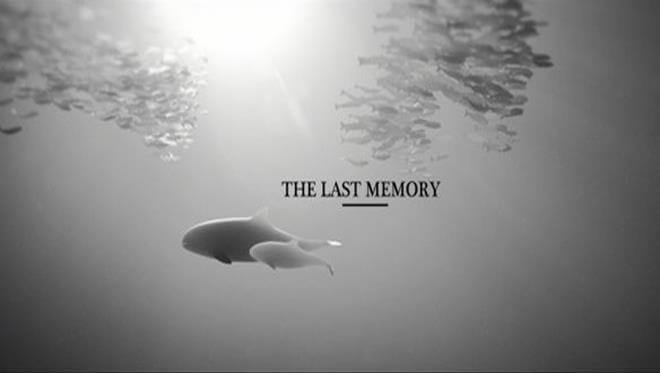This exciting short film begins with the warmth of subtle poetry, we immerse ourselves in a world of bright whites, an enveloping gray that attracts sad memories, but in which we must advance between the seabed of algae that dance to the sound of music to discover it: our whale.
This isn’t just any whale, it’s a cute marsuino. They are smaller than a dolphin and mostly live in the cold waters of the Baltic Sea. In our short film we feel it immediately, accompanied by its young people. Both swimming, dancing and moving with their characteristic dorsal fin, triangular and small, very small.
- The title of this short film is “The Last Memory?”And in it.
- Oliver Latta brings us in a delicate and masterful way.
- And in just over three minutes.
- A small story with a beginning and an ending that leaves no one indifferent.
His intention was only to show the world something that happens every day, and we want you to also know through this space that is ours that the voice of our whales, the holiest inhabitants of the ocean, is not lost in the sea of silence.
What would you think if we said that it is estimated that today there are only 300 Marsines left in the Baltic Sea?Well, in fact, it’s the sad reality of an ocean that gradually loses each of its ancient inhabitants.
The marsines, also known as? Marsines? Because they are captivating and small, they are on the brink of extinction, according to a report by the?International Union for Conservation of Nature (IUCN), it is very likely that they will be the next marine species to disappear. The data is very alarming.
In recent years, a simple technique has been used with which it is hoped to be able to save the marsuines, or at least delay their disappearance, in what way? The sounds that the marsines make when they experience alarm or fear situations are recorded and then played back on devices installed in fishing nets.
In addition to preventing them from being captured, it also prevents them from approaching this danger zone where the trawls fall. Currently, many fishing companies use the method, but not all, because the investment is quite high.
Meanwhile, the Baltic marsuino, this type of cetacean genetically different from the others, is about to disappear from the ocean.
Their smooth gray skin, their sad song of lament, as if it were a serene lullaby, will never be heard again in the cold waters of these northern oceans, where most have been outraged against them, where they fish, hunt. and fishing for oil exploitation. and the resulting contamination makes them disappear.
After all, many of our sea gods will be nothing more than yesterday’s ghosts, mythological beings halfway between dream and forgetfulness, we cannot ignore what intensive fishing does at sea, which these wild hunts of our whales, dolphins and sharks do in our marine ecosystem.
Think about it Do you share this video and do your part so it doesn’t happen?

